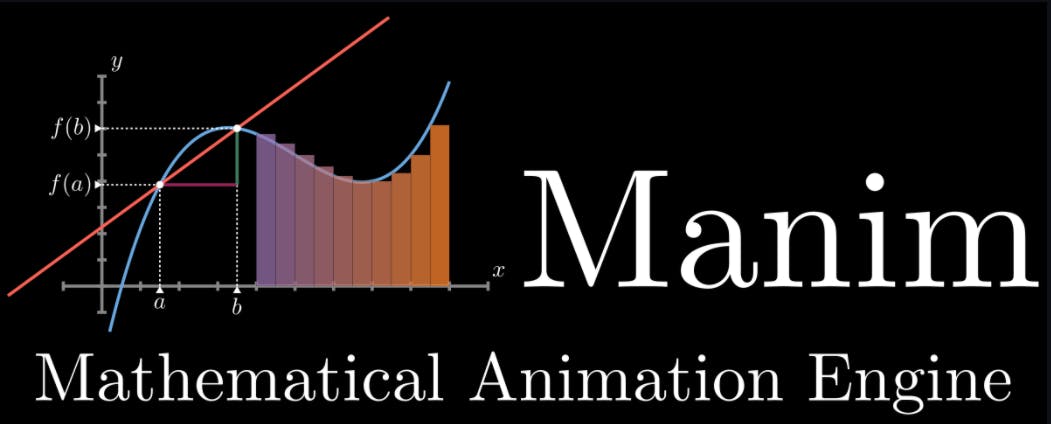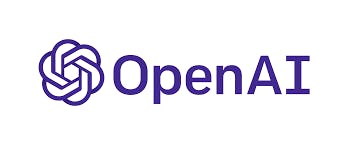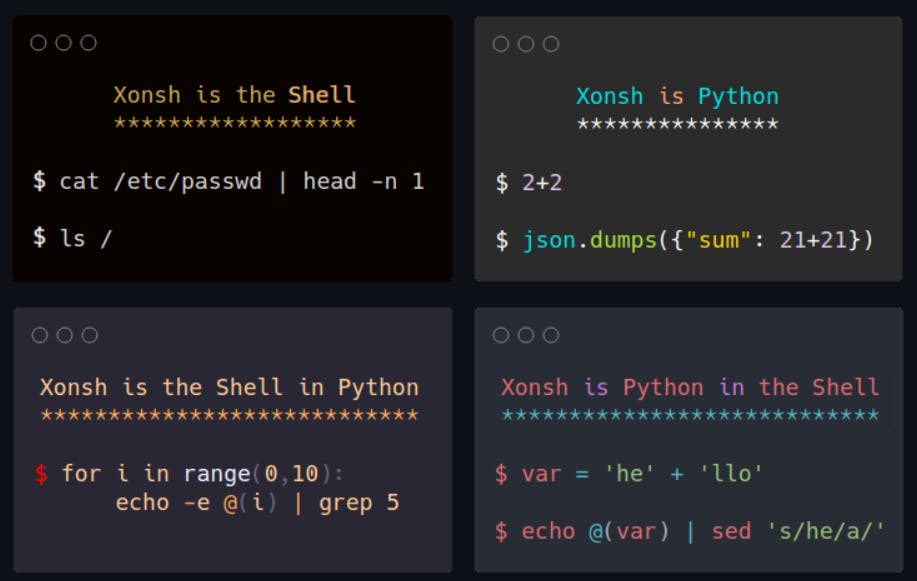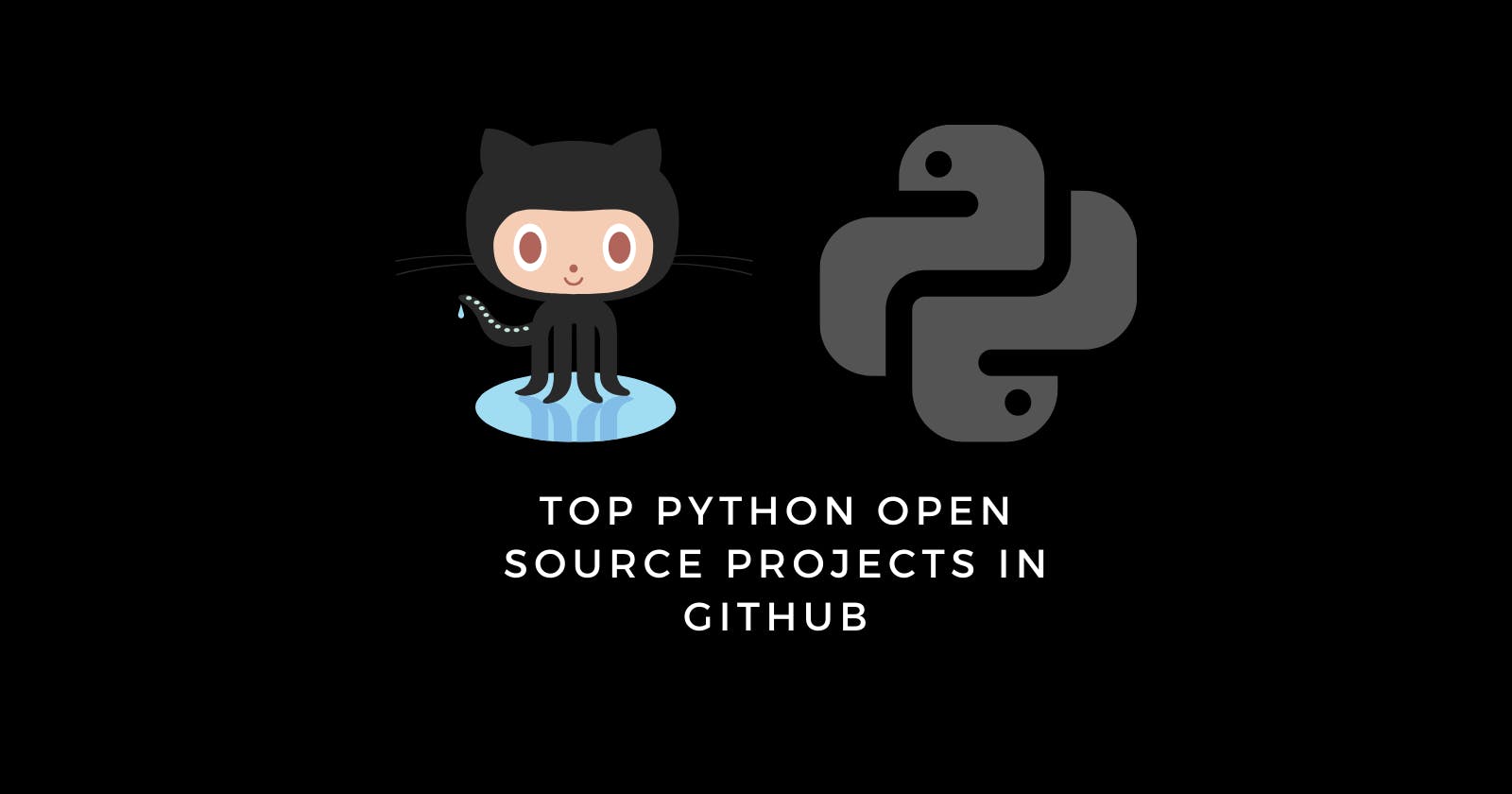Hello everyone. How is it going? Hope you all doing well. Let's dive into the topic. Nowadays we are hearing a lot of buzz about Open Source. So, let's see the evergreen Python's top Open Source projects in Github. In this blog, I am going to share 10 amazing Open Source projects.
1. Manim (⭐33.9k)
 Manim - Mathematical Animation Engine
Manim - Mathematical Animation Engine
Manim is an animation engine for explanatory math videos. It is basically used to create precise animations programmatically and runs on Python 3.6 and above. Manim uses Python to generate animations programmatically, which makes it possible to specify exactly how each one should run.
DeepFaceLab (⭐26.5k)
 DeepFaceLab is an open-source deep fake system created by iperov for face swapping. It provides an imperative and easy-to-use pipeline for people to use with no comprehensive understanding of the deep learning framework or with model implementation required. This system provides a flexible and loose coupling structure for people who needs to strengthen their own pipeline with other features without writing complicated boilerplate code.
DeepFaceLab is an open-source deep fake system created by iperov for face swapping. It provides an imperative and easy-to-use pipeline for people to use with no comprehensive understanding of the deep learning framework or with model implementation required. This system provides a flexible and loose coupling structure for people who needs to strengthen their own pipeline with other features without writing complicated boilerplate code.
Airflow (⭐21.6k)
 Airflow is a platform to programmatically author, schedule, and monitor workflows. The pipelines in Airflow allow for writing code that instantiates pipelines dynamically. to use this platform, you will need Python versions 3.5 and above. It allows users to use Python features to create workflows, monitor, schedule, and manage the workflows using the web app. Anyone with Python knowledge can deploy a workflow. It also has plug-and-play operators that are ready to handle your task on Google Cloud Platform, AWS, Microsoft Azure, and many other services.
Airflow is a platform to programmatically author, schedule, and monitor workflows. The pipelines in Airflow allow for writing code that instantiates pipelines dynamically. to use this platform, you will need Python versions 3.5 and above. It allows users to use Python features to create workflows, monitor, schedule, and manage the workflows using the web app. Anyone with Python knowledge can deploy a workflow. It also has plug-and-play operators that are ready to handle your task on Google Cloud Platform, AWS, Microsoft Azure, and many other services.
GPT-2 (⭐14.6k)
 GPT-2 is a large transformer-based language model with 1.5 billion parameters, which is trained with a simple objective to predict the next word, given all of the previous words within some text. GPT-2 generates synthetic text samples in response to the model being primed with arbitrary input. It is a large-scale unsupervised language model which generates coherent paragraphs of text, performs rudimentary reading comprehension and machine translation. It can also perform question answering and summarization. It can generate conditional synthetic text samples of unprecedented quality.
GPT-2 is a large transformer-based language model with 1.5 billion parameters, which is trained with a simple objective to predict the next word, given all of the previous words within some text. GPT-2 generates synthetic text samples in response to the model being primed with arbitrary input. It is a large-scale unsupervised language model which generates coherent paragraphs of text, performs rudimentary reading comprehension and machine translation. It can also perform question answering and summarization. It can generate conditional synthetic text samples of unprecedented quality.
Horovod (⭐11.3k)
 Horovod is an open-source distributed deep learning training framework for TensorFlow, Keras, PyTorch, and Apache MXNet. Developed by Uber, the goal of Horovod is to make distributed deep learning fast and easy to use. The primary motivation for this project is to make it easy to take a single-GPU training script and successfully scale it to train across many GPUs in parallel. It is fast and easy to use, achieves 90% scaling efficiency for both Inception V3 and ResNet-101, and 68% scaling efficiency for VGG-16.
Horovod is an open-source distributed deep learning training framework for TensorFlow, Keras, PyTorch, and Apache MXNet. Developed by Uber, the goal of Horovod is to make distributed deep learning fast and easy to use. The primary motivation for this project is to make it easy to take a single-GPU training script and successfully scale it to train across many GPUs in parallel. It is fast and easy to use, achieves 90% scaling efficiency for both Inception V3 and ResNet-101, and 68% scaling efficiency for VGG-16.
ML-Agents (⭐11.1k)
 The Unity Machine Learning Agents ToolKit(ML-Agents) is an open-source project that enables games and simulations to serve as environments for training intelligent agents. The agents can be trained using reinforcement learning, imitation learning, neuroevolution, or other machine learning methods through a simple-to-use Python API. Some of its features include support for multiple environment configurations and training scenarios, flexible Unity SDK, built-in support for imitation learning, among others.
The Unity Machine Learning Agents ToolKit(ML-Agents) is an open-source project that enables games and simulations to serve as environments for training intelligent agents. The agents can be trained using reinforcement learning, imitation learning, neuroevolution, or other machine learning methods through a simple-to-use Python API. Some of its features include support for multiple environment configurations and training scenarios, flexible Unity SDK, built-in support for imitation learning, among others.
XSStrike (⭐9.3k)
 XSStrike is a Cross-Site Scripting detection suite equipped with four handwritten parsers. It is an intelligent payload generator, a powerful fuzzing engine as well as an incredibly fast crawler. The key features of XSStrike include multi-threaded crawling, configurable core, WAF detection, complete HTTP support, and more.
XSStrike is a Cross-Site Scripting detection suite equipped with four handwritten parsers. It is an intelligent payload generator, a powerful fuzzing engine as well as an incredibly fast crawler. The key features of XSStrike include multi-threaded crawling, configurable core, WAF detection, complete HTTP support, and more.
NeuralTalk (⭐5.2k)
 NeuralTalk is a Python and Numpy source code for learning Multimodal Recurrent Neural Networks that describe images with sentences. NeuralTalk2 is written in Torch and runs on the GPU. It also supports CNN finetuning, which helps a lot of performance.
NeuralTalk is a Python and Numpy source code for learning Multimodal Recurrent Neural Networks that describe images with sentences. NeuralTalk2 is written in Torch and runs on the GPU. It also supports CNN finetuning, which helps a lot of performance.
Xonsh (⭐4.9k)
 Xonsh is a Python-powered, cross-platform, Unix-gazing shell language and command prompt. It is a superset of Python 3.6+ with additional shell primitives from Bash and IPython. The language is meant for the daily use of experts and novices. It works on all major systems, including Linux, Mac OS, and Windows.
Xonsh is a Python-powered, cross-platform, Unix-gazing shell language and command prompt. It is a superset of Python 3.6+ with additional shell primitives from Bash and IPython. The language is meant for the daily use of experts and novices. It works on all major systems, including Linux, Mac OS, and Windows.
Optuna (4.6k)
 Optuna is an automatic hyperparameter optimization software framework, particularly designed for machine learning. It features an imperative, define-by-run style user API. It allows for an automated search for optimal hyperparameters using Python conditionals, loops, and syntax. It can also parallelize hyperparameter searches over multiple threads or processes, without modifying code.
Optuna is an automatic hyperparameter optimization software framework, particularly designed for machine learning. It features an imperative, define-by-run style user API. It allows for an automated search for optimal hyperparameters using Python conditionals, loops, and syntax. It can also parallelize hyperparameter searches over multiple threads or processes, without modifying code.
That's a wrap. Thanks for reading. Follow me on Twitter where I regularly post some great content.
